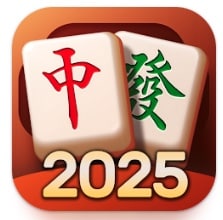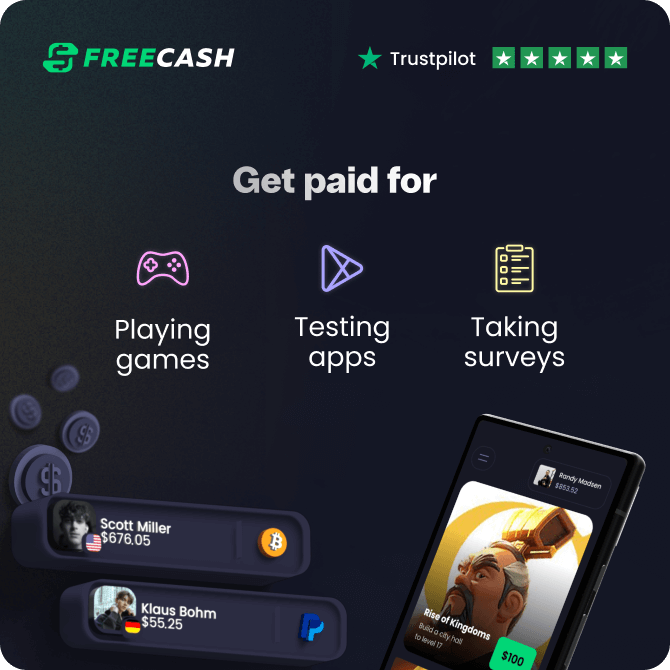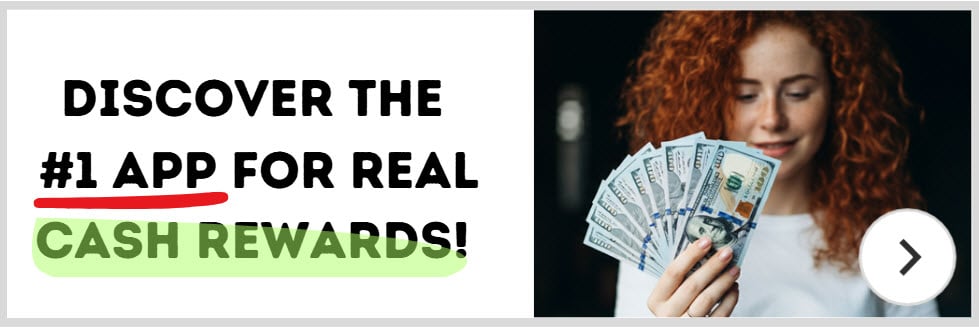 Welcome to my Mahjong Pairing Review!
Welcome to my Mahjong Pairing Review!
Scrolling through the Google Play Store, it’s easy to get tempted by games promising “easy money” while you relax on your couch.
One such title is Mahjong Pairing, developed by Ismail Elaariss, boasting over 100,000 installs and a seemingly impressive 4.6-star rating.
At first glance, it looks like a classic tile-matching puzzle with an added incentive: earn real cash as you play.
However, scratch beneath the surface, and the reality is far less charming. This is another fake cash game that tricks players into watching endless ads while dangling impossible payouts.
If you’re wondering, “Is Mahjong Pairing legit or fake? Will it pay me?” the short answer is: it’s fake, and the “rewards” are an illusion. But let’s go step by step.
👉 Before you leave, click here and discover my favorite app that pays for playing games!
What Is Mahjong Pairing?
Mahjong Pairing presents itself as a mahjong-style puzzle game.
The gameplay is deceptively simple: tap identical tiles to remove them from the board and complete levels.
Each level you clear grants you diamonds and cash rewards, which appear in a wallet at the top of the screen.
The game encourages you to tap the green “claim” button to accumulate these rewards, reinforcing the feeling that every move gets you closer to a real payout.
The developers reinforce this illusion with advertisements showing a woman holding her phone, claiming she has earned $80 in winnings and boasting that the game is an “official PayPal partner.”
Naturally, this is false. There is no partnership with PayPal, and the only thing players are guaranteed to receive is an inflated on-screen balance.
The first few levels are intentionally easy, giving the player a sense of progress and accomplishment.
This encourages users to invest more time in the app while believing the rewards are genuine.
It’s a classic psychological tactic: small wins hook the player, then the game sets an impossible barrier.
How Does Mahjong Pairing Work?
Here’s the real mechanics behind the “rewards system.”
- Clear tiles to earn cash: Each time you pair tiles, your in-game balance increases. Early levels reward you with decent amounts, creating the illusion that money is flowing.
- Claim rewards via the green button: A prominent green button invites you to collect your balance. Each tap shows your growing total, building anticipation for the eventual payout.
- Reach a minimum withdrawal threshold: The app sets a withdrawal limit at £500. At first, this seems achievable, especially with the early rewards, but this is where the scam becomes clear.
- Reward shrinkage and roadblocks: As you near £500, the rewards decrease dramatically, sometimes by just a few cents per level. Players frequently report getting stuck at around $499.50, unable to cross the threshold no matter how much time they spend playing.
It’s not complicated, but it’s diabolically effective. Players are tricked into watching endless ads, believing every tap will bring them closer to real cash.
Meanwhile, the developers profit handsomely from advertising revenue, and the player earns nothing.
False Advertising

This reward platform is going viral! Cash out via PayPal, Visa, Gift Cards, and in-game currencies - Click here to find out how to generate an extra $10+ per day!
Mahjong Pairing’s promotional materials deserve a special mention because they’re both clever and misleading.
The woman in the ad says, “Only a fool wouldn’t play,” flashing her phone showing $80 in winnings. She implies that payouts are fast and easy and presents the game as officially affiliated with PayPal.
Let’s be real: this is advertising manipulation at its finest. It creates social pressure, suggesting you’re missing out on easy money if you don’t play.
The fake PayPal claim adds perceived legitimacy, making the game seem trustworthy when it is anything but.
The app also encourages users to share their “progress” or “winnings” with friends, which doubles as a marketing tactic. Players think, “If everyone else is earning money, I should too,” further perpetuating the cycle.
What the Reviews Really Say
The 4.6-star rating on the Play Store might make you think this game is legitimate. But the truth lies in the details. A closer look at individual reviews reveals a different story.
Many players complain about never receiving their cash. Some reach the withdrawal threshold of £500, only to find that their balance mysteriously stagnates at $499.50.
Others report watching hundreds of ads and still being unable to cash out. Some reviews explicitly call out the game as a scam, warning future players that the rewards are illusory.
This pattern mirrors countless other fake cash apps: they lure players in with small, early-stage rewards, then block withdrawals just before the threshold.
Meanwhile, they continue generating revenue through ad impressions.
The Psychological Tricks
Mahjong Pairing uses several classic techniques to trap players:
- Small early rewards: These encourage players to keep tapping and watching ads. A sense of progress convinces the brain that a larger payout is just around the corner.
- Visual cues: The green “claim” button and animated wallet reinforce the illusion of growth and accumulation.
- Scarcity and artificial barriers: By stopping rewards just shy of the withdrawal limit, the app creates frustration, which ironically increases engagement. Players are more likely to keep playing and watching ads in hopes of finally reaching the goal.
- Social proof in ads: Showing a woman “winning” creates a perception of legitimacy. It makes you think others have succeeded and so can you—until reality hits.
It’s a manipulative combination of psychology, fake rewards, and ad monetization, and it works because most players don’t pause to question the legitimacy.
Does Mahjong Pairing Pay?
No. Mahjong Pairing does not pay real money. The app is designed to make players think they are earning, while the only tangible gain is the developer’s ad revenue.
All the mechanisms—from fake cash balances to unreachable withdrawal thresholds—exist to trap players in endless gameplay loops.
Even if you were foolish enough to enter sensitive information like PayPal emails or banking details, the app still wouldn’t transfer the promised money. It’s a time trap, not a financial opportunity.
Conclusion
In the end, Mahjong Pairing isn’t the easy cash machine it pretends to be.
What starts as a colorful, engaging puzzle quickly turns into a frustrating cycle of false rewards, endless ads, and unreachable payouts.
The flashy advertisements, the so-called PayPal partnership, and the supposedly generous balances are all illusions meant to keep players hooked while the developers rake in ad revenue.
Even if you invest hours into pairing tiles and chasing that £500 threshold, the game will stop short of paying out, leaving you with nothing but wasted time and growing frustration.
If your goal is to enjoy a mahjong-style game, plenty of legitimate apps exist that offer fun challenges without dangling fake money or exploiting your attention.
Mahjong Pairing, despite its glowing Play Store rating, is a trap disguised as entertainment, and the only thing you will earn here is a lesson in skepticism.


